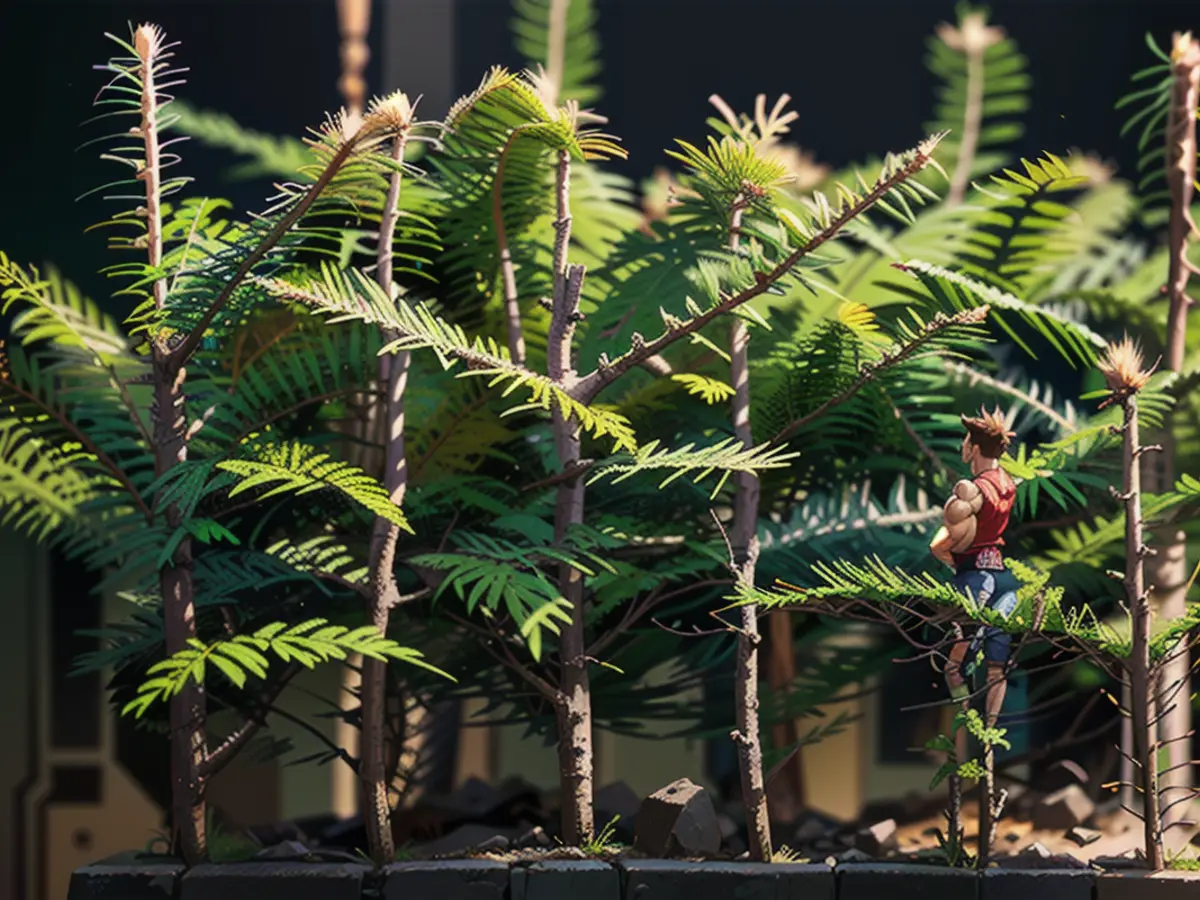Woodland management - Tree seed provider supports development of diverse future woodland.
HessenForst, a forest agency, is stepping up its efforts to supply more tree seeds for reforestation and forest management with a brand new seed center in Hanau, Germany. Speaking at the grand opening, their head, Michael Gerst, noted that climate adaptation of forests is a timeless responsibility, not just for foresters - it's something that concerns everyone in society. Recently, severe weather conditions, such as multiple years of drought and storms, have left Hesse's forests in bad shape.
It's not enough to merely replant bare spots with climate-resilient trees. What's also important is to enhance ongoing forest management in existing plots. That's why HessenForst's new center in Hanau-Wolfgang comes as a crucial addition.
Hesse has lost around 90,000 hectares of forest area since 2018, with 40,000 hectares being lost in the Hessian state forest alone. Natural regeneration, as we know, is when trees grow and reproduce on their own. Unfortunately, this method isn't enough to ensure successful reforestation. So, suitable and adaptable seeds are required.
The seed center in Hanau-Wolfgang specializes in collecting and processing seeds of native trees. One example: acorns are collected and later have hot water (about 40 degrees Celsius) poured over them to help prevent fungal infections. Seeds from other species are carefully separated from any additional parts. The processed seeds are then sent to nurseries for turning into saplings, which are sold. The center also maintains and stores some of the processed seeds. In peak seasons, over 70 tons of acorns have been processed, and there's a plan to increase this number to about 100 tons in the future.
HessenForst's spokesperson confirmed that the area's recent heavy rainfall is good news for young trees. The fully saturated soil provides optimal growing conditions. While older trees like it less, the water also helps to keep the tree's root structures healthy. However, not all trees are capable of benefiting from this moisture. Some may have been damaged by the years of drought, which could limit their ability to absorb water and reduce their overall vitality.
HessenForst set its sights on creating diverse, or mixed, forests and envisions a "forest of the future." Their goal is to have at least three, if not four or five, distinct tree species in every area. This will help spread the risks. Since 2018, nearly 21 million young trees have been planted in the Hessian state forest. In 2023, they planted about four million plants. However, they've decided to rely more on natural regeneration this year, with a slightly reduced number of planted trees compared to previous years. After all, the previously planted trees still need attention and upkeep.
Read also:
- As a part of their commitment to forestry, HessenForst, a state enterprise in Hesse, Germany, is working on enhancing tree seed production at their new seed center in Hanau.
- Michael Gerst, head of HessenForst, emphasized the importance of climate adaptation in forests, stating that it's a shared responsibility, not just for foresters, but for society as a whole.
- With severe weather conditions affecting Hesse's forests, such as multiple years of drought and storms, the need for diverse, or mixed, forests has become increasingly crucial. The new seed center in Hanau-Wolfgang will play a vital role in ensuring a healthier, resilient forest ecosystem.
- To achieve their goal of creating diverse forests, HessenForst is collecting and processing seeds of native trees, such as acorns, which are essential for replanting and maintaining healthy forests. The center in Hanau-Wolfgang processes around 70 tons of acorns during peak seasons and aims to increase this number in the future.
- In line with the CDU's environmental policies, HessenForst is focusing on natural regeneration and planting a mix of tree species in various areas to reduce risks and promote a sustainable, diverse forest landscape for the future.








